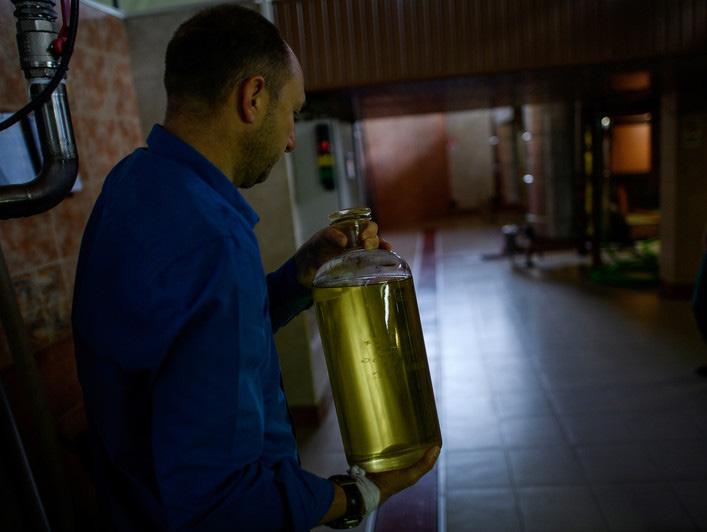
5 minute read
Malta Insights
CorporateDispatchPro

A THIRD OF ENTERPRISES CONDUCT INNOVATION PROCESSES
Enterprises employing 10 people or more invested a total €175 million in innovation activities in 2018, according to data published by the National Statistics Office. Just over 70 percent of the expenditure was in innovation processes excluding Research and Development budgets, while intramural R&D accounted to slightly more than 25 percent.


Around a third of surveyed enterprises said that they had undertaken innovation activities in the three years from 2016 to 2018. Nearly 52 percent of the 865 enterprises conducted both product and business process innovation. More enterprises were engaged in business process innovation only (36%) than in product innovation only (9%).
Enterprises in the information and communications economic sector registered the highest share of expenditure, exceeding €62 million, followed by the financial and insurance sector (€44.8M)and the manufacturing sector (€28.5M).
The construction sector and the real estate sector recorded the lowest investment in innovation activities, each at €0.2 million. One in ten of the surveyed enterprises applied for an intellectual property right or licence.


DROP IN JOBLESSNESS FROM JULY TO AUGUST
Registered unemployment fell by 309 people from July to August but it more than doubled from August last year. Data by the National Statistics Office shows that the total number of jobless stood at 3.672 in August, up from 1,645 in the same month 2019.
The figure, however, represents a 13 percent decrease from the previous month. In July 2020, registered unemployment stood at 3,981, a sharp rise from 1,654 in the same month last year. Both July and August 2019 reached lower joblessness levels than the annual average. The year-on-year increase recorded in August 2020 remains smaller than that registered in July 2020.
Unemployment decreased across all age groups from July to August, but the biggest fall was observed in the under-20 age bracket (-12.9%) followed by the 25-29 age group (-11.6). The narrowest decrease was seen among people over 65 years (-5.6%). This age group had the highest number of jobless, at 1,444. At the other end, there were 197 people under 20 years in registered unemployment.

Joblessness decreased among both women and men month-on-month, falling from 1,432 to 1,315 among the former and from 2,295 to 2,129 among the latter.

CorporateDispatchPro


PRODUCER PRICES DECREASE FROM JULY
The Industrial Producer Price Index in August fell by 1.00 percent, following an increase of 0.93 percent in July. Figures by the National Statistics Office indicate a drop across all categories, with a 2.24 percent decrease in intermediate goods, 0.41 percent in capital goods, and 0.04 percent in consumer goods. The energy sector remained stable.


Compared with August 2019, the Index rose by 0.46 percent, driven by a rise in consumer goods (+1.74%) and capital goods (+0.48%). Intermediate goods, on the other hand, fell by 0.29 percent over the same period while no change was observed in the energy category.
Industrial prices in the domestic market grew by 0.01 percent month-on-month and by 1.56 percent year-on-year. In both cases, consumer goods recorder the biggest gains with an increase of 0.03 percent compared with July 2020 and of 5.12 percent compared with August 2019.
Non-domestic prices decreased by 1.64 percent from the previous month and by 0.24 percent from the year before.
INCOME TAX REVENUE DOWN BY A FIFTH SO FAR THIS YEAR
Government revenue for the first eight months dropped by more than 20 percent compared to the same period last year. Figures by the National Statistics Office show that between January and August, the Government’s Consolidated Fund stood at €2,542.8 million, down from €3,190.2 million in 2019. Total expenditure rose by 16.3 percent to €3,611.1 million this year.



Increases were recorded under Fees of Office (€30.6 million), Miscellaneous Receipts (€29.9 million) and Dividends on Investment (€4.0 million). On the other hand, Income Tax fell from €1,071.2 last year to €835.9 this year – the largest drop among recurrent revenue categories.
Decreases were also experienced in Value Added Tax (-€177.3 million), Grants (-€84.6 million), Customs and Excise Duties (-€84.5 million), Social Security (-€72.8 million), Licences, Taxes and Fines (-€59.8 million), and Reimbursements and Rents (both -€7.7 million).
Capital spending by the government rose from €313 million in 2019 to €525 this year, driven mainly by €213 million in investment incentives.
CorporateDispatchPro


FINANCE AND INSURANCE INDUSTRIES DOMINATE FDI IN 2019
Foreign Direct Investment flows in Malta stood at €3.275 billion in December 2019, down from €3.362 from December 2018. Figures by the National Statistics Office, however, show that the stock position of FDI registered an increase, rising to €187.9 billion during 2019 from €179.3 billion the previous year.
Financial and insurance activities enjoyed the lion’s share of total FDI with 87.5 percent. Compared with 2018, however, the combined contribution of these areas fell from €2.929 billion to €2.865 billion. On the other hand, FDI in Information and Communications activities grew by more than 50 percent to reach €123.4 million while investment in Transportation, Accommodation, and Real Estate services grew from €130 million in 2018 to €186 million last year.
Direct Investment flows abroad grew by €20 million year-on-year to reach €6.390 billion in 2019, while the stock position decreased by €1.0 billion over the same period to settle at €59.5 billion.

More than 99 percent of the investment outflow was in financial and insurance activities, reaching €59.1 billion, down from €60.2 billion the year before. FDI abroad rose to €133.8 billion at the end of December, significantly up from €10.6 billion twelve months earlier.






